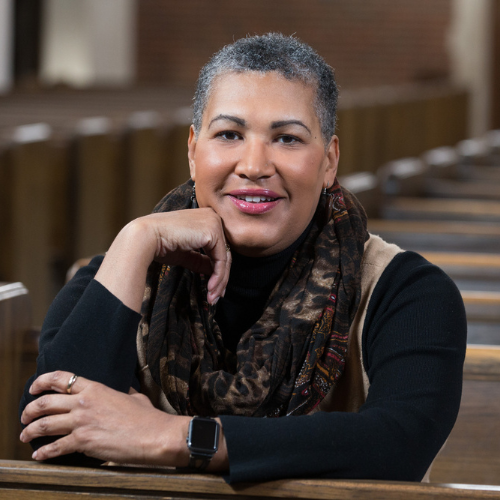Here we are, Working Preachers,
’Tis the season. It’s not yet Christmas, though. Despite the trees with lights hung, and places with carols sung, the time is Advent. In the expectation of family gatherings, a few days off from school and work, and the chance to catch up on some favorite seasonal movies, we all are experiencing the waiting that accompanies the season.
It has always been the intent of the creating/covenanting God to strengthen the weak and care for the less fortunate. Yet we can seek blessings that resemble the culture’s idea of flourishing: health, wealth and leisure. A short-sighted promise of the Christmas season would suggest we can be satisfied by a good meal, the right presents, and a few days off. So, it remains the task of the preacher to give words to our experience in a way that not only explains a religious season shadowing our winter holidays, but to remind us that it’s not yet Christmas.
As you prepare to mark this Sunday of joy, remember just how important this promise is for some. The realities of the holidays seem to exacerbate the headlines that haunt our communities all year.
Distress, sorrow, and doubt are real, A loved one has died, or some are moving into the first Christmas without a parent, sibling, partner, child, or friend. Parched spirits confront dwindling resources of retirement benefits or government aide. Anguish after a doctor’s diagnosis or an employer’s pink slip can cause one to pray the question raised by John, the baptizer, Are you the one who is to come, or should we expect someone else? In times like these, one wants a bit of assurance they are have placed their confidence in the right one.
John, the one who went headlong to the wilderness with a maverick spirit of boldness to confront hypocrisy and confidence in the promises of his priestly father’s God, now sits in a jail cell with a death sentence.
- What he saw were conversions of some with the most venomous personalities.
- What he saw was the spirit of God so evident on Jesus he knew his place was behind his younger cousin.
- What he saw were multitudes who followed him with such confidence in his words that they easily turned from him to Jesus.
- What he saw was corruption in the national leader that could not be ignored, dismissed, or allowed to continue.
And now what he sees is that he will not see the promises fulfilled in his lifetime. So now, the voice from the wilderness must listen to the testimony of others.
The accompanying response, recorded as Jesus’ words “What do you see,” requires us to return our scriptural imaginations to the continued promises of God. The words ring with double entendre: those without vision and hearing are alerted, those whose movement has been stifled are released, those who were silenced are given voice. Their testimony is amplified as nature itself exemplifies the joy of divine presence.
As is the witness of scripture, our means of setting things right must be submitted to the reign of God. The kingdom is still coming. The promises are not yet fulfilled. That is easy enough to see. Like the kings of ancient Israel, first century rulers in Jerusalem failed to enable a society where all prosper. To this corruption, those with a vision of God’s reign are encouraged to open their eyes to glimpses of good. Who would think evidence of grace would be all around us? Who could expect joy in this 21st-century Advent journey?
We who read the story as description of what God is doing in the world. The epistle instructs the early church to follow the example of those who have gone before. Rather than ask us to do something that has never been done, rehearse the moments when grace was extended in the name of Jesus. What do you see?
- In John, the unwavering seeking of God’s promised Messiah.
- In Corrie Ten Boom, a commitment to shelter those her government labeled foreigner.
- In the 2019 California super bloom, nature’s capacity to demonstrate God’s splendor from the desert’s wasteland.
Who in your congregation or community has held out faith, offered joy, demonstrated justice while waiting for God’s next move? Tell their story as a testimony to God’s faithfulness. Those healed are more than medical miracles. They are evidence that God is setting the world right.
So, open our eyes to glimpse what God is doing that looks like the promises of Jesus. Unlike the combatant tones we choose when othering one another, Isaiah showed us joy in the land by describing an earthly arrangement where the wilderness blooms. Contrary to the ease with which our online avatars attack, the psalmist encourages us to renew our commitment to creating communities and relationships where everyone is safe. Most noteworthy among the people of God is when justice is extended to all the earth. Knowing God’s healing, God’s prosperity, and God’s peace, this is the place from which our joy arises.
This week, we testify to God’s great joy. Acknowledge the prisons we find ourselves in, but do not leave us to wallow in our doubt. Show us where God is on the move and ask us what is our strategy for joy?
So when you offer your congregation a strategy for joy, ask: What will you do while you wait for God’s next move?
- Write a check for an Innocence Project,
- Allow someone to cut in front of you in traffic,
- Visit a nursing home.
Do this to show that God is faithful; that God is present; that God hasn’t given up on setting the world right again. This is the Advent journey preachers can invite congregations to pursue.
Joy

